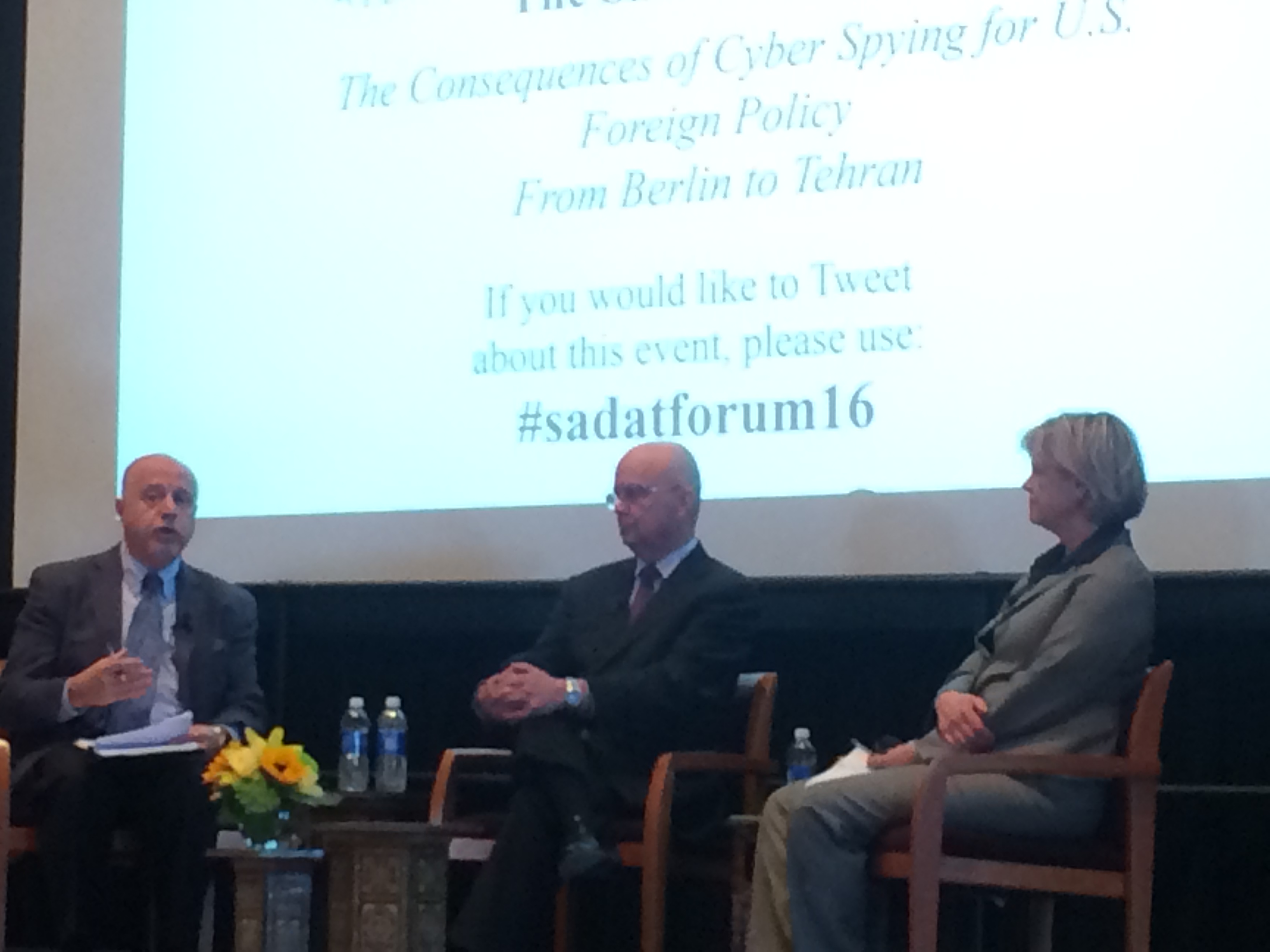By John Brundred
For The Diamondback
General Michael Hayden, former CIA and National Security Agency director, visited the University of Maryland on Thursday afternoon to speak on a panel addressing cyber spying and foreign policy.
The panel event, sponsored by the John S. and James L. Knight Chair in Public Affairs Journalism and the Anwar Sadat Chair for Peace and Development in the latest installment of its Sadat Forums, drew more than 250 students, faculty members and visitors to Stamp Student Union’s Grand Ballroom.
“Cyber spying makes American foreign policy better informed and thereby allows our foreign policy makers a greater understanding of the world which they have to make difficult decisions about,” Hayden said.
Hayden joined Dana Priest, a journalism professor and Washington Post investigative reporter, as well as Shibley Telhami, the Anwar Sadat Professor for Peace and Development, in the open event. Journalism school Dean Lucy Dalglish introduced the speakers.
“The biggest public affairs stories involve global securities and national securities, but very few people understand them, and very few journalists know how to cover them,” she said.
The panelists agreed that 9/11 and recent technological advancements have forced government agencies, such as the NSA and the CIA, to transform the ways in which they gather information.
Cyber spying has grown to such a large scale that it makes many people feel uncomfortable, Telhami said.
Cyber spying can be a necessity, though, Hayden said — not only because of terrorist threats, but also because 60 percent of American intelligence is the result of electronic surveillance. More information is stored electronically than ever before, but that does not mean all of it is being monitored by government agencies, Hayden said.
“This is what responsible nations have to do in order to be responsible governments,” Hayden said.
Foreign nations also tend to use the United States to gather information about themselves or other countries, mainly due to the fact that some other countries — such as Belgium — do not condone cyber spying, Hayden said.
Despite the public debate about the legality of cyber spying, Hayden said that while he believes the United States is the most transparent country in the world, the government needs to be even more transparent. It cannot operate effectively unless the public believes the government’s actions are acceptable, he said.
Some audience members, such as hearing and speech sciences professor Colleen Worthington, said they gained a new perspective after attending the forum.
“We tend to get caught up in a certain event and we make judgments based on that event — we just hear about when it does not work — but we need to look at the big picture,” she said.
Worthington said some people dedicate their lives to the safety of American citizens and that while spying might not be inherently good, it is an attempt to keep people safe.
Will Zhang, a sophomore computer engineering major, attended the event because he said it seemed like an intellectual topic that all college students should think about.
“We like to think that our government does all the right things,” Zhang said. “I do not think the problem is that we spy on other countries or people; I think the problem is that the general public would like to think the government does not do any spying.”
Hayden echoed this sentiment, adding that if the United States is using tools to spy on other countries, it can’t get caught.
“We should be ashamed of ourselves for getting caught,” he said.
CORRECTION: A previous version of this story incorrectly stated that it drew more than 100 students, faculty members and visitors, when it should have said 250. Also, the panel event was co-sponsored by the John S. and James L. Knight Chair in Public Affairs Journalism. This article has been updated.



